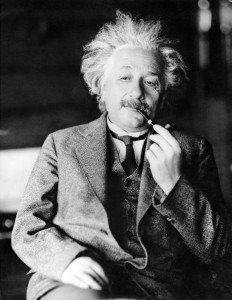
Thomas Kuhn
I've been reading Thomas Kuhn's The Structure of Scientific Revolutions and realizing it's applicability to the ongoing conversation regarding Biblical truth. Kuhn was no philosopher or theologian, he was a scientist, but he proposed scientific paradigms should be allowed to change through a term he coined as "paradigm shifts."
A paradigm shift would occur when scientists encountered anomalies which could not be explained by the accepted paradigm. All of this seems rather obvious, of course, and yet just like in the theological realm, scientists are not quick to let go of their paradigms. In fact, Kuhn argued when enough anomalies accrue against an accepted paradigm, the discipline in question is thrown into crisis. The crisis will then give way to a new paradigm which is not to be confused with absolute truth, but a current understanding or interpretation of absolute truth, always threatening to be changed by more anomalies. The process was designed, then, to respect truth over interpretation, or truth over the human biases that might distort truth.

He kind of looks like a heretic to be honest.
In 1900, Lord Kelvin rather presumptuously stated There is nothing new to be discovered in physics, five years after which Albert Einstein published his paper on special relativity.
Paradigm shifts should not be associated with a theory of relativism. The idea is not that truth is changing, but that further study is changing our understanding of truth.
When Kuhn talks about paradigms in crisis, he isn't kidding. Scientists who threatened existing paradigms (including Einstein) were called heretics and banned for years from presenting papers at certain universities. The tension in the sciences was much more ferocious than we are seeing in the evangelical church today.
When theologians throw out anomalies that threaten their paradigms, they respect their interpretation of truth more than truth, or worse, believe their interpretation of truth is actually truth. They use terms like Biblical and heretic to convince themselves and others that their interpretation is the real truth and others are a threat to "the gospel" or to God Himself. This sort of language isn't helpful or respectful of anomalies, not to mention it's behavior indicates a genuine intellectual threat that should be taken seriously, not dismissed as heresy.
What we are encountering in Christian culture today is a paradigm in crisis. Will there be a shift in the way we understand truth or read the Bible? Time will tell. But it would be arrogant of us to dismiss the anomalies. Dismissing anomalies rather than addressing them may be good for existing structures, including financial structures and power structures, but it isn't good for truth. This does not mean anomalies have to be accepted, but rather carefully addressed in a reasonable manner.
The audience that reads this blog has been surveyed and found well educated and a rather large portion of you serve in professional ministry of some sort. So I want to open this up for questions.
What are the anomalies accruing against the widely accepted Biblical paradigm? I realize that question is vague, because I have not defined that paradigm, but perhaps leaving it open will allow a wider variety of anomalies to be discussed.
I have several of my own:
1. Is the Bible supposed to be used like a constitution? And if so, why isn't it structured as such?
2. How do we reconcile propositional truth with the language of Christ who claims to actually be truth?
3. If to know Christ is to know truth, how do we give up the metrics we commonly use to decide whether or not somebody is a Christian? Do we create relational metrics, or simply give control over to God and just introduce people to the person of Christ?
4. Why do certain sects within evangelical Christianity claim their interpretation of truth as absolute, when their interpretation is fit with unanswered anomalies? (I suppose thats the point of this post.)
Thanks for considering these ideas.
When Truth is the Enemy of Truth is a post from: Donald Miller's Blog
 newest »
newest »
 newest »
newest »
 newest »
newest »
Thank you Donald...I'm checking it out on your website now...(-: